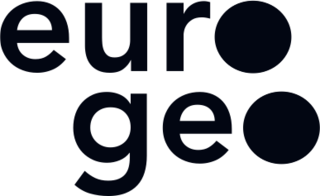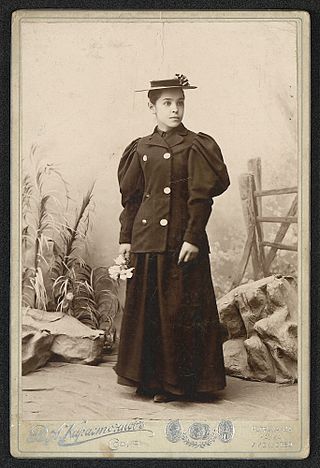Related Research Articles
The International Federation of Library Associations and Institutions (IFLA) is the leading international body representing the interests of people who rely on libraries and information professionals. An independent, non-governmental, not-for-profit organization, IFLA was founded in Scotland in 1927 and maintains headquarters at the National Library of the Netherlands in The Hague. IFLA sponsors the annual IFLA World Library and Information Congress, promoting universal and equitable access to information, ideas, and works of imagination for social, educational, cultural, democratic, and economic empowerment. IFLA also produces several publications, including IFLA Journal.
The Associated Country Women of the World (ACWW) is the largest international organization for both rural and urban women, with a membership of nine million in over 70 countries. ACWW holds a triennial conference and publishes a magazine, The Countrywoman, four times a year.

Founded in 1991, the International Coalition of Girls' Schools (ICGS) is a non-profit membership association serving Pre-K through 12th-grade single-sex girls’ schools across the globe. Its members are independent, public, charter, and religiously-affiliated schools. ICGS provides various community services including research on the outcomes of girls’ schools, advocacy outreach, professional development opportunities and networking events for educators to connect and collaborate.
The Leadership Conference on Civil and Human Rights, formerly called the Leadership Conference on Civil Rights, is an umbrella group of American civil rights interest groups.
Graduate Women in Science (GWIS), formerly known as Sigma Delta Epsilon Graduate Women in Science (SDE-GWIS), is an international organization for women in science, first established in 1921 at Cornell University in Ithaca, New York, United States. The organization currently has over 1,000 members and dozens of chapters spread across the United States as well as an international chapter that was established in 2013.

The International Pharmaceutical Students' Federation (IPSF) is a non-governmental, non-political and non-religious organisation that represents pharmaceutical students, pharmacy students and recent graduates from all over the world. It was founded in 1949 and it is the oldest faculty-based student organisation. IPSF represents over 500,000 individuals in more than 100 countries with 127 different representative pharmacy student member organisations.

Geeta Rao Gupta is a leader on gender, women's issues, and HIV/AIDS who has been serving as executive director of the 3D Program for Girls and Women and senior fellow at the United Nations Foundation since 2017. She is frequently consulted on issues related to AIDS prevention and women's vulnerability to HIV and is an advocate for women's economic and social empowerment to fight disease, poverty and hunger.

The United Nations Entity for Gender Equality and the Empowerment of Women, also known as UN Women, is a United Nations entity working for gender equality and the empowerment of women. UN Women advocates for the rights of women and girls, and focuses on a wide array of issues, including violence against women and violence against LGBTIQ+ people.

EUROGEO is a European scientific society, which networks geographers. It is an international non-governmental organisation. Since 1987 EUROGEO has been a participative member of the Conference of International NGOs of the Council of Europe. The association is involved in national and international activities and projects in geography including those related to education and training. It is a not profit organisation, which aims to develop, support and promote policies designed to advance the status of geography; establish and promote cross-border cooperation; promote education and training in geography from a European perspective and represent nationally and internationally the views of its members.
The FIMCAP, which is short for Fédération Internationale des Mouvements Catholiques d’Action Paroissiale, is an umbrella organization for Catholic youth organizations. Its 31 member organizations are based in 28 countries. The FIMCAP was founded in 1962 and is recognised as an official Catholic organization by the Dicastery for Laity, Family and Life. FIMCAP is also a full member of the European Youth Forum.
The British Federation of Women Graduates (BFWG) was founded in 1907 as the British Federation of University Women (BFUW) to "afford a means of communication and of united action in matters affecting the interest of women". It was renamed the British Federation of Women Graduates in 1992. The current organisation "seeks to promote opportunities for women in education, and public life more generally" and provides "graduate women living in England, Scotland and Wales with information, support and friendship, at local, regional, national and international levels. Conferences, meetings, networks and social events, at all levels, are open to all members". The BFWG is affiliated to the International Federation of University Women (IFUW), of which it was a founder member, and University Women of Europe (UWE).
The Institute of Refrigeration is an organisation in the UK that supports the refrigeration and air-conditioning industry.
The National Association for Women in Education was an American organization founded in 1916 by Kathryn Sisson Phillips to support female deans of women.

Ekaterina Hristova Zlatoustova was a Bulgarian feminist, civil servant and teacher.
Coordination of Islamic Colleges (CIC), based in Kerala, India, is an Islamic university serving as an academic administrative body. Colleges affiliated with the C. I. C. offer "Wafy" courses for men and "Wafiyya" for women, which combine both Islamic and secular higher education. These courses were designed and developed by Abdul Hakeem Faizy, an Islamic scholar and educationalist, who currently serves as the General Secretary of the C. I. C. and is an executive board member from India at the League of Islamic Universities based in Cairo. Panakkad Sayyid Sadiq Ali Shihab Thangal is the current President of the C. I. C. At present, there are around 100 institutes affiliated to the C. I. C in Kerala.
The International Federation of Workers’ Education Associations(IFWEA) is an international organisation of associations, foundations, non-governmental organisations and trade unions involved in adult education for working people. It is based in Cape Town, South Africa, is an observer at the International Labour Organisation and UNESCO and is a member of SOLIDAR.
Evlyn Fenwick Farris was a scholar and advocate for continuing education and women's rights. She was the founder of the first University Women's Club of Vancouver, and was elected to the Senate of the University of British Columbia.
Audrey Evelyn Jones was an English teacher and campaigner for women's rights. She joined the staff of the St Cyres School in the Vale of Glamorgan in 1960 and rose to the position of deputy head teacher. During her career, Jones encouraged young girls to study mathematics and art to combat sexism in education, worked to further girls' education and on sex discrimination research in schools. In retirement she focused on campaigning for women's rights with the Wales Assembly of Women (WAW) on the world scene and through the Vale of Glamorgan Labour Party. The WAW established the Audrey Jones Memorial Awards for Research in her honour and her documents and personal papers were deposited at the Glamorgan Archives
Action Health Incorporated (AHI), established in 1989 and based in Lagos, Nigeria, is a non-profit organization dedicated to promoting the health and development of young people, particularly adolescent girls, "to ensure their successful transition to healthy and productive adulthood". Integral to AHI's programming is the involvement of the young people themselves, who play a prominent role in organising activities and representing AHI at local, national and international conferences.
References
- ↑ Oertzen, Christine von (April 30, 2016). Science, gender, and internationalism : women's academic networks, 1917-1955. Springer. ISBN 978-1-137-43890-4 . Retrieved 2 January 2019.
- 1 2 Goodman, Joyce (November 2011). "International citizenship and the International Federation of University Women before 1939". History of Education. 40 (6): 701–721. doi:10.1080/0046760x.2011.598469.
- 1 2 "Our Vision - Graduate Women International (GWI)". Graduate Women International (GWI). Retrieved 2017-04-13.
- ↑ "GWI Manifestos - Graduate Women International (GWI)". Graduate Women International (GWI). Retrieved 2017-04-13.
- 1 2 "Projects - Graduate Women International (GWI)". graduatewomen.org.
- ↑ "Our Story - Graduate Women International (GWI)". Graduate Women International (GWI). Retrieved 2017-04-13.
- ↑ "GWI Timeline - Graduate Women International (GWI)". Graduate Women International (GWI). Retrieved 2017-04-13.
- ↑ "Bosanquet, Theodora (1880–1961), literary editor and writer". Oxford Dictionary of National Biography. doi:10.1093/odnb/9780198614128.013.90000380707 . Retrieved 2022-11-19.
- ↑ Goodman, Joyce (6 November 2011). "International citizenship and the International Federation of University Women before 1939". History of Education. 40 (6): 701–721. doi:10.1080/0046760X.2011.598469.
- ↑ Goodman, Joyce (6 November 2011). "International citizenship and the International Federation of University Women before 1939". History of Education. 40 (6): 701–721. doi:10.1080/0046760X.2011.598469.
- ↑ "Full steam ahead for women's education as IFUW rebrands and reaffirms global commitment under Graduate Women International" (PDF). www.graduatewomen.org. April 27, 2015. Archived (PDF) from the original on September 24, 2015. Retrieved April 24, 2017.
- ↑ "General Assembly - Graduate Women International (GWI)". Graduate Women International (GWI). Retrieved 2020-03-11.
- ↑ "IFUW Triennial Conferences - Graduate Women International (GWI)". Graduate Women International (GWI). Retrieved 2020-03-11.
- ↑ "Committees & Working Groups 2019-2021 - Graduate Women International (GWI)". Graduate Women International (GWI). Retrieved 2020-03-11.
- ↑ "Hegg Hoffet - Graduate Women International (GWI)". Graduate Women International (GWI). Retrieved 2017-04-13.
- ↑ "Areas of Focus - Graduate Women International (GWI)". graduatewomen.org.
- ↑ "Bina Roy Partners in Development Programme - Graduate Women International (GWI)". Graduate Women International (GWI). Retrieved 2020-05-13.
- ↑ "Teachers for Rural Futures - Graduate Women International (GWI)". Graduate Women International (GWI). Retrieved 2020-05-13.
- ↑ "GWI Twinning Programme - Graduate Women International (GWI)". Graduate Women International (GWI). Retrieved 2020-05-13.